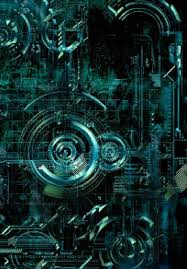Journal of Information
Technology and Engineering
ISSN No: 2229-7421
Editor
Vinay Kuwar Pratap
University of South Africa
South Africa
Click here to View the Editorial Board

ISSN: 2229-7421
Journal of Information Technology & Engineering (JITE) is a peer reviewed International Journal. JITE seeking original and unpublished manuscripts publication the journal. The Journal seeks to bridge and integrate the intellectual, methodological, and substantive diversity of engineering scholarship, and to encourage a vigorous dialogue among engineering scholars engaged in research in various fields of engineering and information technology. The topics suggested by this issue can be discussed in term of concepts, surveys, state of the art, research, standards, implementations, running experiments, applications, and industrial case studies.
Specific topics of interest for this issue include, but are not limited to the following:
JITE aims to publish full length original research papers, reviews, case studies related to all areas of Engineering such as; Information Technology, Computer Science, Civil, Mechanical, Industrial, Electrical, Computer, Chemical, Petroleum , Aerospace, Agricultural, Applied, Automobile, Aviation, Architectural, Biomedical, Building Services, Coastal, Combustion, Communication, Earth Systems, Ecological, Energy Aspects, Environmental, Food Processing, Genetic, Information Technology, Marine & Ocean, Metallurgical & Materials, Military, Mining & Geological, Nano, Nuclear, Optical, Pharmaceutical, Planetary, Polymer, Safety, software, Surveying, Systems & Manufacturing Engineering.
Abstract Guidelines: Abstracts
must include sufficient information for reviewers to judge the nature
and significance of the topic, the adequacy of the investigative
strategy, the nature of the results, and the conclusions. The abstract
should summarize the substantive results of the work and not merely list
topics to be discussed. An abstract is an outline/brief summary of your
paper and your whole project. It should have an intro, body and
conclusion. It is a well-developed paragraph, should be exact in
wording, and must be understandable to a wide audience. Abstracts should
be no more than 250 words, formatted in Microsoft Word, and
single-spaced, using size 12 Times New Roman font. Abstracts highlight
major points of your research and explain why your work is important;
what your purpose was, how you went about your project, what you
learned, and what you concluded. If your title includes scientific
notation, Greek letters, bold, italics, or other special
characters/symbols, do make sure they appear correctly.
Focus of the journal: Information Technology, Computer Science, Civil, Mechanical, Industrial, Electrical etc...
Started: 2010
Submission: Authors are
requested to submit their papers electronically to jite.editors@gmail.com
Indexing & Abstracting: JITE is index in Google Scholar, Research Gate...
Frequency: Two issues per year.
Article Processing
Charges: There is no article article processing charges in the journal.
Readership: The journal is useful for the Engineering Colleges, Research Scholars, Academicians, Industry professional.
Plagiarism: All the
articles will be check through Turnitin Software before the publication of the
journal.
Abbreviation: J Inf Technol Eng
Journal of Information Technology & Engineering currently
has an acceptance rate of 21%. The average time between submission and
final decision is 1 month and the average time between acceptance and
publication is 3 to 4 month.
Review Process: This
journal uses double-blind review, which means that both the reviewer
and author identities are concealed from the reviewers, and vice versa,
throughout the review process. The articles is submitted to minimum 3
reviewers specialize on the topic for their reviews.
Corrections to Published Work:
Honest errors are a part of research and publishing and require publication of a correction when they are detected. We expect authors to inform the Journal’s Editor of any errors of fact they have noticed or been informed of in their article once published. Corrections are made at the journal’s discretion. The correction procedure depends on the publication stage of the article, but in all circumstances a correction notice is published as soon as possible. Details can be found on the Call for Papers section of the journal website.
Retractions: Retractions are considered by journal editors in cases of evidence of unreliable data or findings, plagiarism, duplicate publication, and unethical research. We may consider an expression of concern notice if an article is under investigation. All retraction notices will explain why the article was retracted. The retraction procedure depends on the publication stage of the article.
Important Tools: English Grammar Checker Plagiarism Checking Proofreading
Submission: Authors are requested to submit their papers electronically to
Frequency: Two issues per year.
Review Process Followed
Content
Vol. 1 No. 1 (January-June, 2016) Vol. 1 No. 2 (July-December, 2016)
Vol. 2 No. 1 (January-June, 2017) Vol. 2 No. 2 (July-December, 2017)
Vol. 3 No. 1 (January-June, 2018) Vol. 3 No. 2 (July-December, 2018)
Vol. 4 No. 1 (January-June, 2019)